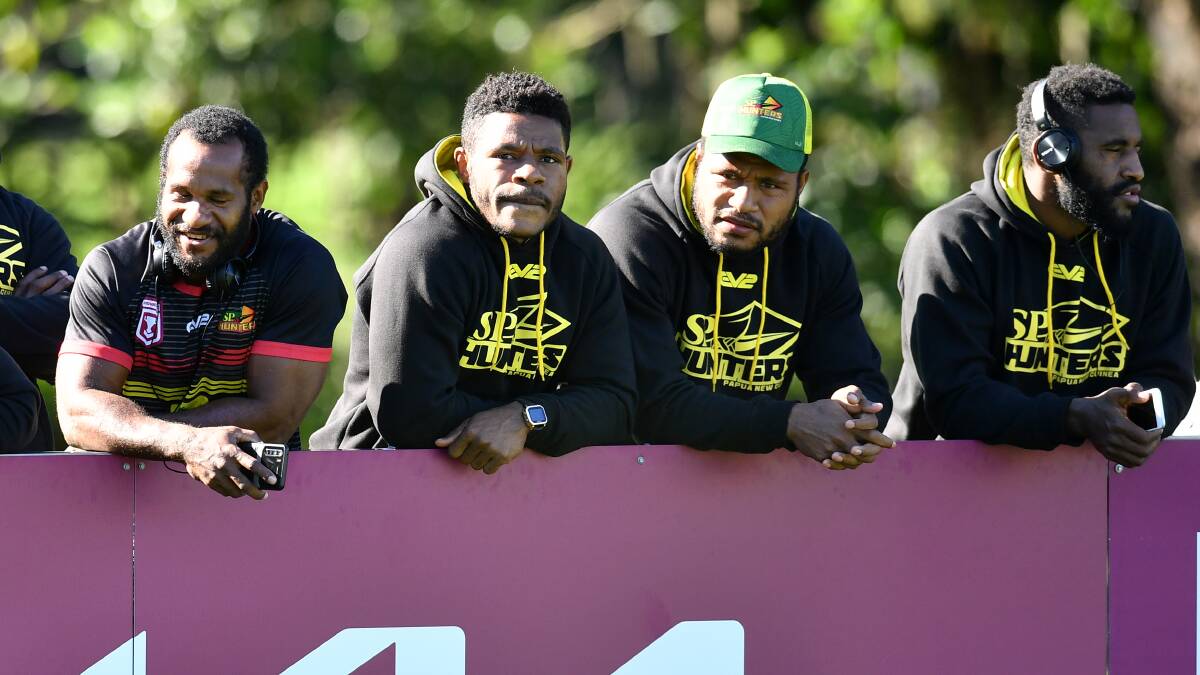China is relentless in the Pacific. As far into the future as we can see, it won't give up trying to increase its influence among our little neighbours, ideally getting their governments under its complete control.
So just a few weeks after Australia agreed in December to help Papua New Guinea strengthen its policing, we hear that China is making a similar offer.
Whenever Beijing is attempting to influence an underdeveloped Pacific country, we must worry that it ultimately will establish a military presence and, to secure its position, undermine democracy.
And it will not stop trying.
We have nothing like a direct way of blocking it. We just have to work tirelessly at sustaining and increasing our own influence, often in cooperation with friends, especially the US and New Zealand. We neglected the Pacific for years until about 2017, while China was busily at work, and now have no chance of suddenly improving our position.
"You can't surge influence," says Euan Graham, a senior analyst with the Australian Strategic Policy Institute.
China is proposing to help PNG's police force with training, equipment and surveillance technology, Port Moresby's foreign minister, Justin Tkachenko, told Reuters this week. Policing was also a focus of the December agreement to tighten security relations between Port Moresby and Canberra.
Tkachenko's latest remarks suggest no immediate risk of Beijing overturning the Australian-PNG relationship. "We deal with China at this stage only at economic and trade level," Tkachenko says. "They are one of our biggest trading partners, but they have offered to assist our policing and security on the internal security side."
PNG has big problems with crime and social disorder, so it's looking at the offer. And we can't complain about that.
Don't imagine that China is doing this out of any sense of goodwill. Rather, getting the PNG police force dependent on it in some way would be the thin edge of an influence wedge.
"This shows that China is really pushing, focusing in the region, an area where Australia has put a lot of effort," says Graham.
China rather likes offering international help with policing and therefore social control, being so good at it at home. No doubt it understands that, if it combines strong policing with enough political bribery, it has the main ingredients for overthrowing democracy.
It probably imagines a kind of ratchet mechanism. If a country is shifted into a condition of authoritarianism and dependence on China, it's unlikely to shift back.
So, if at first Beijing doesn't succeed, it tries, tries again.
The possible outcome is not just oppression of the people of Pacific nations, though that would be bad enough. Australia must worry about military sensors, warplanes and especially strike and anti-aircraft missiles being based in those countries.
Targets in Australia could be threatened, and so might our supply line to the US.

PNG, the largest of the Pacific nations, is among our biggest strategic worries. But in our efforts to counter China, we have an unusual tool: rugby league.
The sport is wildly popular in PNG, where it was introduced by Australian miners and soldiers in the 1930s and 1940s. So Anthony Albanese's support for PNG entering the NRL - and, reportedly, a willingness to back the move with $600 million over 10 years - is brilliant.
China hardly has a clue about the concept that experts in international relations call soft power: having influence over other countries by being appealing to them. That contrasts with hard power, which China understands very well: military strength and the use of trade as a crude tool, a crowbar.
PNG already competes in Queensland rugby league. Getting it into our national competition should strongly boost Papua New Guineans' feelings of association with us. Participation would help unite PNG, too, promoting the idea of a national identity.
Australian media have mostly reported the prospect of PNG becoming the NRL's 18th team as a sports story. But it's a far bigger deal as national-security news, under the heading "China".
We have probably underestimated the diplomatic value of rugby union's Super Rugby competition already having a Fijian team and one from other Pacific Islands, who collectively play as Moana Pasifika.
China has nothing like that cultural connection with the Pacific. It's nearest equivalent is propaganda.
League, union and American and Australian football are all "olive ball" in Chinese, so call this effort "olive-ball diplomacy".
We can consider boosting other activities that promote our connections with Pacific nations, says Graham, noting that letting people from the region come here for work is helpful.
MORE AGE OF THE DRAGON:
Again, the government, commendably, is already on the case, with the Pacific Australia Labor Mobility scheme. If Australian businesses in regional areas cannot find workers, they're allowed to temporarily hire from Pacific countries and East Timor.
Just the economic benefits for our Pacific neighbours are enough reason to praise the program. The employees take money back home or remit it to their families as they work.
From our diplomatic point of view, foreign workers spending time in Australia makes them and their families feel a connection with our country.
Again, China cannot match that, since it can't offer high wages for moderately skilled workers, is worried about domestic unemployment and won't find a lot of Pacific people who can speak Mandarin.
"The Australian government is committed to further expanding and improving the PALM scheme in line with Australian and Pacific aspirations," says the Department of Foreign Affairs and Trade. Good.
We need to keep working on our ways of appearing to be an attractive and friendly country to our Pacific neighbours - because China will not give up on its own methods of influencing them.
- Bradley Perrett is a regular ACM columnist with a focus on Australia's relationship with China, covering defence, strategy, trade, economics and domestic policy. He was based in Beijing as a journalist from 2004 to 2020.


